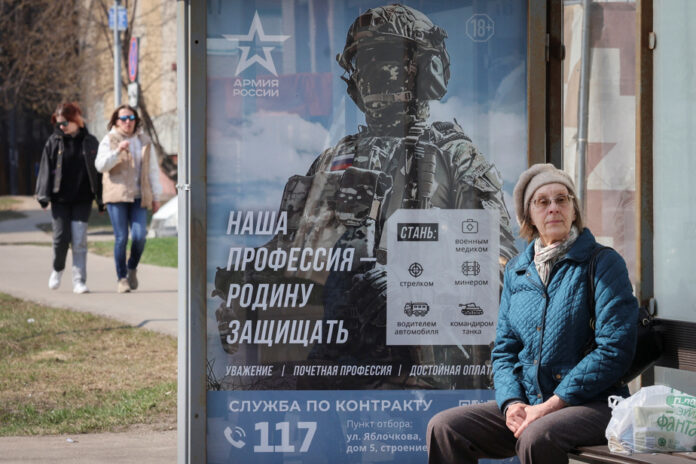(Moscow) At a run and without debate, Russia adopted on Wednesday a law facilitating mobilization in the army and punishing those who resist, a text that greatly worries those who do not want to fight in Ukraine.
In just two days, with unusual speed, the two chambers of the Russian Parliament adopted this law which authorizes the sending of mobilization orders by electronic means and no longer only by hand as before, a system which will make it impossible for the Russians to ignore these summons and much more difficult to escape.
Once the order has been sent, the mobilized person is notably prohibited from leaving the country.
“It is worrying, like all the laws voted for a year. Especially when it’s adopted in two days, we can’t expect anything good from it, “reacted to AFP a 28-year-old Russian, mobilized and living in the north of the country, on condition of anonymity for reasons of security.
If he receives a summons, he plans to “ignore” it, despite the risks involved. “I won’t go to the enlistment office, it’s a direct ticket to Bakhmout,” he said, referring to the town that is the epicenter of deadly fighting in eastern Ukraine.
President Vladimir Putin had decreed a mobilization of 300,000 reservists in September 2022, the implementation of which had often been chaotic. If the Kremlin denies wanting to launch a second wave, many in Russia are worried about it, while the Ukrainian army is preparing a major counter-offensive.
“The front will crack like last autumn, it will be necessary to urgently pile up human meat with machine guns to plug the holes,” says the 28-year-old Russian, according to whom the scale of an upcoming mobilization will “directly depend on the success” of the Ukrainians on the battlefield.
Another 21-year-old Russian living in Siberia, who also prefers anonymity to preserve his safety, says he is “as worried as everyone else”, especially since he has not yet done his compulsory military service. ‘a year.
“What is frightening is the urgency and intransigence of the new law,” he says.
Like many others, he has simply “ignored the enlistment office” since the start of the conflict. “The other day my parents got a call telling them I was on the list,” he adds.
“People in uniform are looking for me to take me to the military police station,” the Russian continues, saying he changes places frequently to escape.
“I’m going to live a little here, a little there. My strategy is still being worked out, it’s too vague.”
The police have the right to hunt down defaulters, who face prison sentences under Russian law.
The tax service, universities and a whole series of other public bodies will have the duty to provide all the personal information of the mobilized.
Refusal to report to the enrollment office will thus deprive Russians of the possibility of working as an entrepreneur or self-employed person, of receiving loans or of disposing of their accommodation and their car.
These measures also concern the tens or even hundreds of thousands of Russians who have fled their country and live in particular on rental income or by working remotely for Russian companies.
According to Russian expert Alexei Tabalov, director of the Conscript School organization, who himself left Russia, ways to escape the army still exist: certificate of incapacity, studies, or bribes. wine.
But it will become much more difficult.
“The degree of freedom is reduced for those who want to hide from the enrollment office. The state will catch them, setting up nets,” he said.
For Mr. Tabalov, the authorities will also try to convince the conscripts called up each year to enlist. “They’re going to do groundwork on the conscripts, persuading them, threatening them and pressuring them into signing a contract.”
The previous mobilization of September 2022 had in any case caused the flight of tens of thousands of Russians abroad.
“Should we leave Russia now? Short answer: Yes,” headlined the Meduza news site on Wednesday, popular with young Russians and declared “undesirable” by authorities.


















